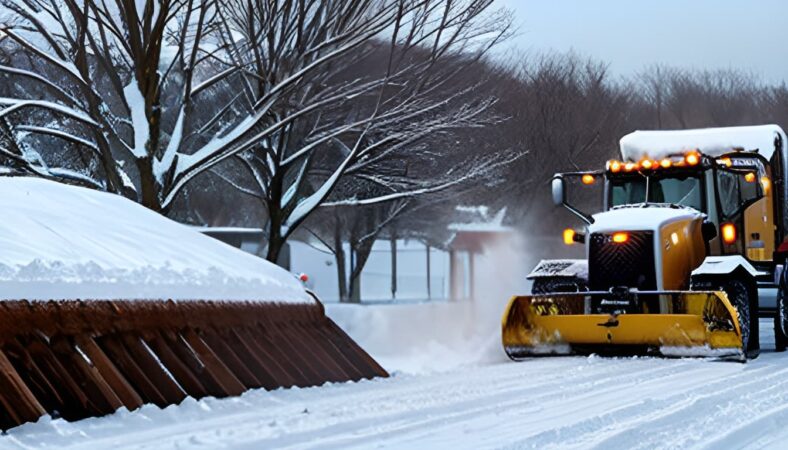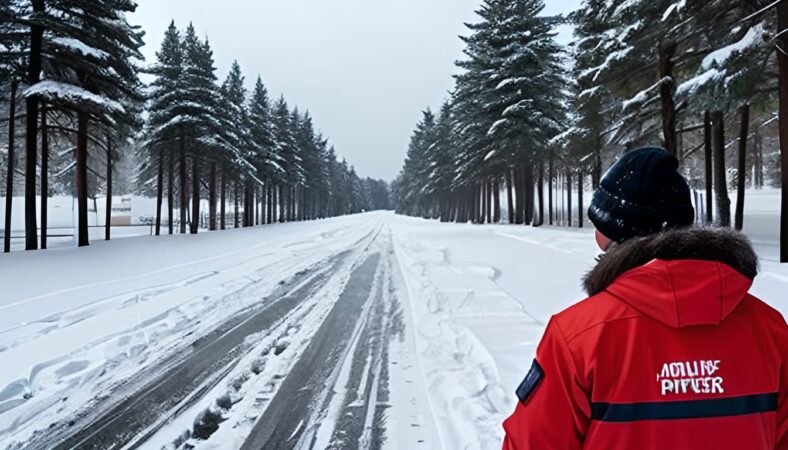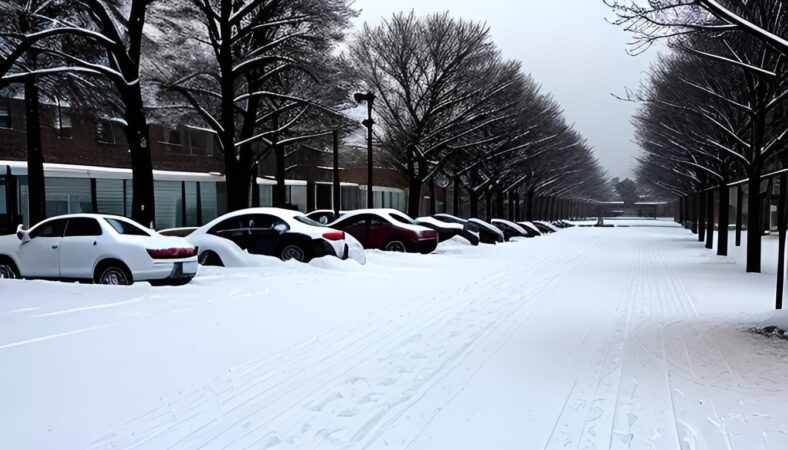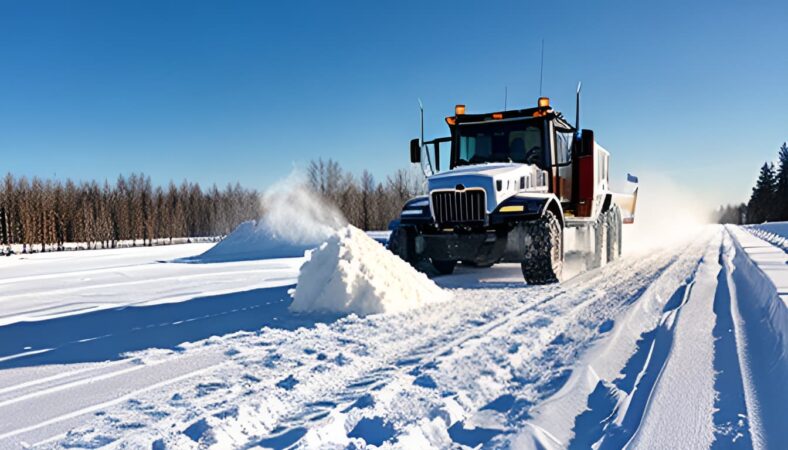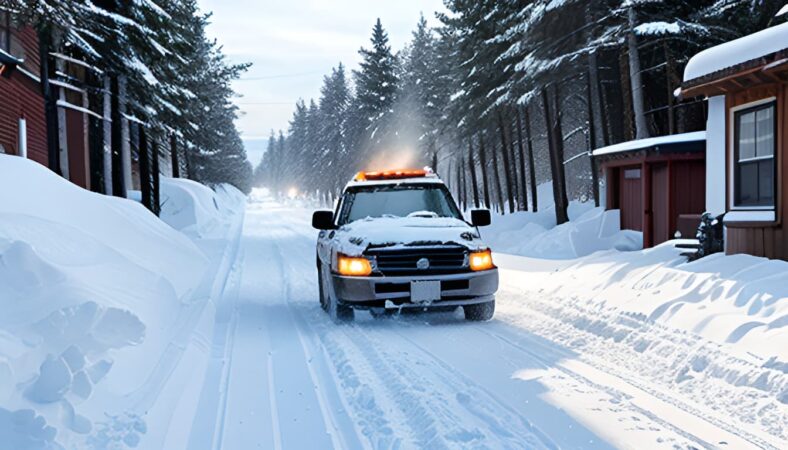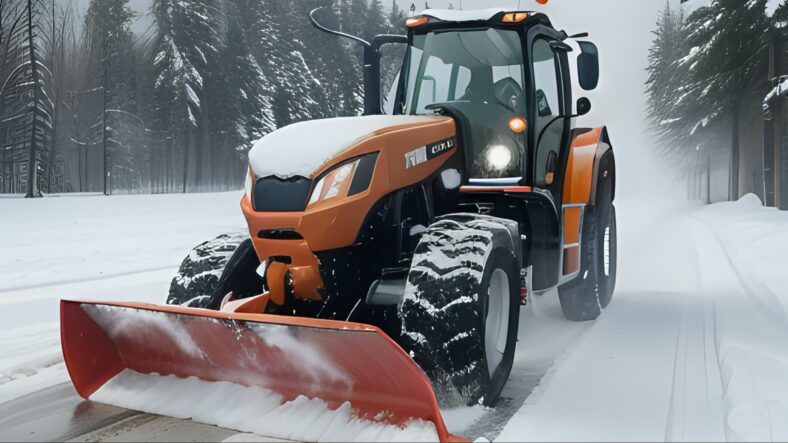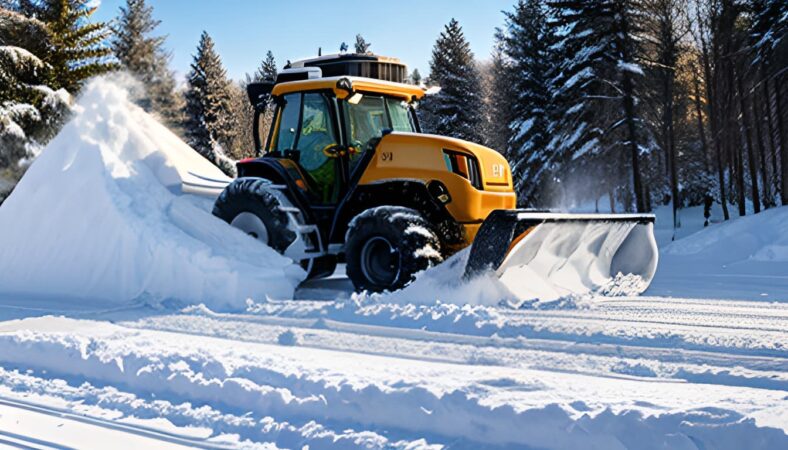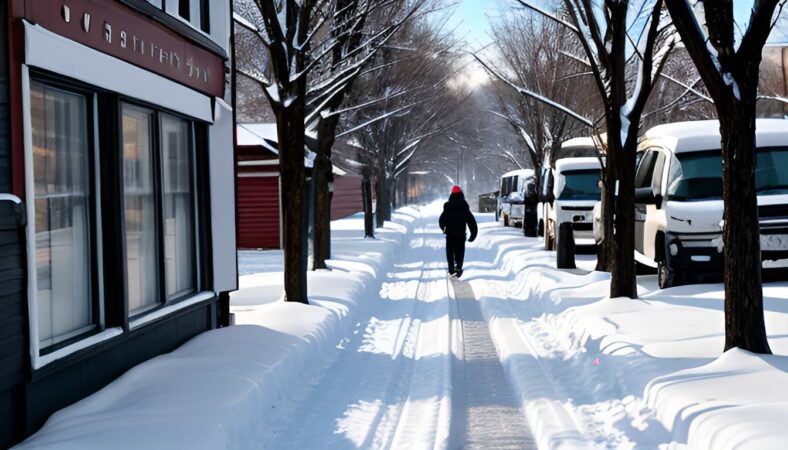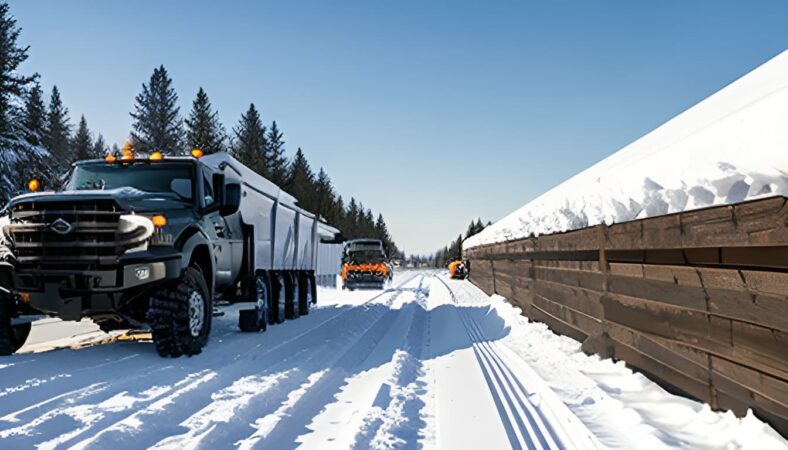Our windows are essential portals to the outside world, framing beautiful views and allowing natural light and fresh air to fill our homes. But a broken window pane can disrupt this harmony, compromising not only the aesthetics of your space but also its energy efficiency and security. Fortunately, replacing broken window glass is a DIY project that you can tackle with the right knowledge and tools. While some situations may require professional window repair Chicago, this guide will equip you with the steps to handle the project yourself. Continue reading
How Fuel Fees and Surcharges Impact Snow Removal Bills
As the winter season arrives, many businesses face a new concern: the escalating costs of commercial snow removal. Rising fuel prices lead to unpredictable expenses, with snow removal companies imposing fuel surcharges and fees. To avoid budget surprises, companies must be prepared. This winter, fuel surcharges are expected to surge, putting pressure on snow removal budgets. To address this challenge, businesses should develop strategies for accurate budgeting and cost mitigation. Consider using a commercial snow removal pricing calculator to plan and manage expenses effectively. Continue reading
Adapting to Trends in Winter Weather Patterns
The winter weather patterns that snow removal companies have long relied on are becoming increasingly unpredictable from year to year. Where once consistent snowfall allowed for easier advanced planning and budgeting, the trends driven by climate change are making winters much more variable and challenging to anticipate. Record warm temperatures one year can be followed by frequent polar vortex cold snaps the next, with snowfall totals fluctuating wildly in different regions. These inconsistent conditions make it incredibly difficult for snow removal contractors to reliably plan their staffing levels, equipment purchases, subcontracting needs, and other operational decisions from one winter season to the next. With revenues dependent on the severity of winter weather, unpredictable patterns also wreak havoc on financial forecasting and stable profitability. Commercial snow removal services need adaptable strategies to continue thriving in the face of weather trends that seem to become more volatile each year. Continue reading
The Ins and Outs of Paving Commercial Parking Lots
When constructing or renovating a commercial parking lot, one of the most important decisions is choosing the right paving materials. Parking lot snow removal requires careful consideration of factors including cost, durability, ongoing maintenance needs, aesthetics, and sustainability. The surface material selected will impact the parking lot for years to come, so it s crucial to evaluate options thoroughly. Asphalt and concrete are the most common paving choices, each with its own set of pros and cons. Operating costs like sealing, repairs, and parking lot snow removal will also depend on whether asphalt or concrete is used. This article will explore the key differences between asphalt and concrete paving for commercial parking lots. We ll compare the upfront expenses, lifespan, maintenance requirements, visual appeal, environmental footprint, and practical implications of each material. With the right information, you can weigh the tradeoffs and confidently pave your parking lot for maximum utility, visual appeal, and long-term value. Continue reading
How Commercial Snow Removal Companies Charge For Non-Winter Months
While spring and summer may seem like the furthest thing from winter snowstorms, the off-season is a critical time for commercial property managers to plan ahead. As temperatures rise, snow and ice removal companies kick preparations for next winter into high gear. Signing service contracts, purchasing equipment, hiring staff – the flurry of off-season activity sets the stage for the upcoming winter. Many providers charge fees during the off-season to cover costs and ensure client commitments when snow starts falling. Understanding common off-season pricing models is key for property managers looking to secure the best value. Getting optimal service at reasonable rates requires negotiating contracts that share the benefits and risks fairly between client and provider. Don’t wait until freezing temperatures hit to start planning. Use the off-season wisely by locking in the most favorable snow removal contract for your commercial property. Continue reading
When To Call for Emergency Snow Removal
During the season’s first significant snowstorm, heavy, wet flakes rapidly blanket your business property. Within hours, 6 inches of dense snow make access difficult for customers and employees, creating hazardous conditions. As the snow accumulates, it’s clear your business could soon halt due to the winter storm. Clearing it manually is impossible. This is when you need to call for emergency snow removal services promptly. Professional assistance ensures safe access, minimizing closures and liabilities during severe winter conditions, keeping your business running smoothly. Continue reading
Snow Removal For Hospitals, Emergency Services And 24-Hour Facilities
For hospitals, emergency services, and other facilities that operate 24/7, maintaining access and business continuity is imperative. Effective snow management ensures unimpeded access across properties and avoids hazardous conditions that could lead to injuries or liability claims, which can increase snow removal costs.These critical community services cannot afford disruptions or impediments to their operations. As such, diligent and timely snow removal takes on heightened importance after winter storms. Proactive snow clearing is crucial for enabling emergency vehicles, personnel, patients, and visitors to safely enter these vital facilities at all hours. Reliable 24/7 snow removal is the key to providing hospitals, emergency services, and 24-hour businesses with the continuous accessibility they require for protecting the public and saving lives. Continue reading
Snow Removal Laws and Regulations
The first snowfall may look beautiful, but it also creates legal obligations for homeowners and businesses. Failure to promptly and properly clear snow and ice from sidewalks, driveways and parking lots can lead to fines or even lawsuits if someone gets injured. That’s why understanding your local commercial snow and ice management services laws and regulations is critical to avoid expensive penalties or liability issues. This article provides an overview of common regulations related to clearing snow from both public and private property. We’ll examine key laws dictating timeframes, responsibility, and consequences for non-compliance. Whether you shovel your own walkways or hire professional commercial snow and ice management services, it’s vital to know the rules in your area so you can remove snow and ice safely and legally. Keep reading to learn more about your rights and responsibilities when it comes to snow removal on public and private property. Continue reading
Lowering Operating Costs for Small Businesses During Winter
During the winter months, small business owners face numerous challenges, including heavy snowstorms, increased heating costs, and snow removal expenses. These factors can significantly impact your bottom line, particularly if you operate with tight profit margins. To mitigate these seasonal effects, consider implementing creative strategies and careful planning. One useful tool for cost management is a commercial snow removal pricing calculator. In this article, we’ll explore ideas for reducing operating costs during the cold winter season, allowing you to maintain efficiency and profitability in adverse weather conditions. Continue reading
Eco-Friendly Practices in Commercial Snow Plowing
As winter’s chill blankets the landscape, the demand for effective and reliable commercial snow plowing services becomes paramount for businesses and communities alike. However, a growing environmental awareness has shed light on the ecological impact of traditional snow removal methods, particularly those involving the use of salt and chemical deicers. In response, there is a burgeoning interest in adopting greener, more eco-friendly approaches to commercial snow plowing. This introduction sets the stage for an exploration of the environmental impact of conventional snow removal practices and the rising demand for sustainable alternatives in the realm of commercial snow plowing services. We will delve into the challenges posed by salt and chemical deicers, their detrimental effects on ecosystems and infrastructure, and the pressing need for a paradigm shift towards eco-conscious snow plowing methods. From innovative technologies to eco-friendly practices, this discussion will illuminate the crucial steps being taken to minimize the ecological footprint of commercial snow plowing services while ensuring that properties remain safe and accessible throughout the winter season. Continue reading

